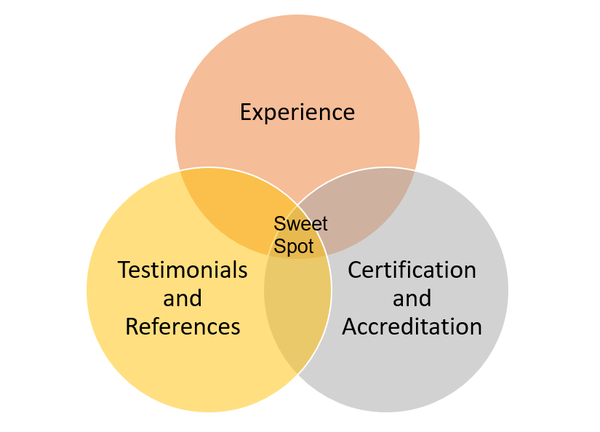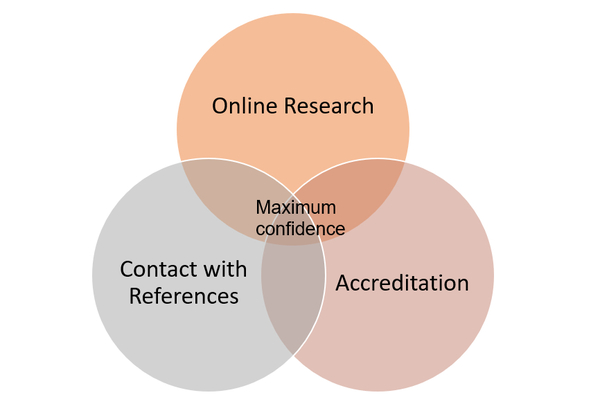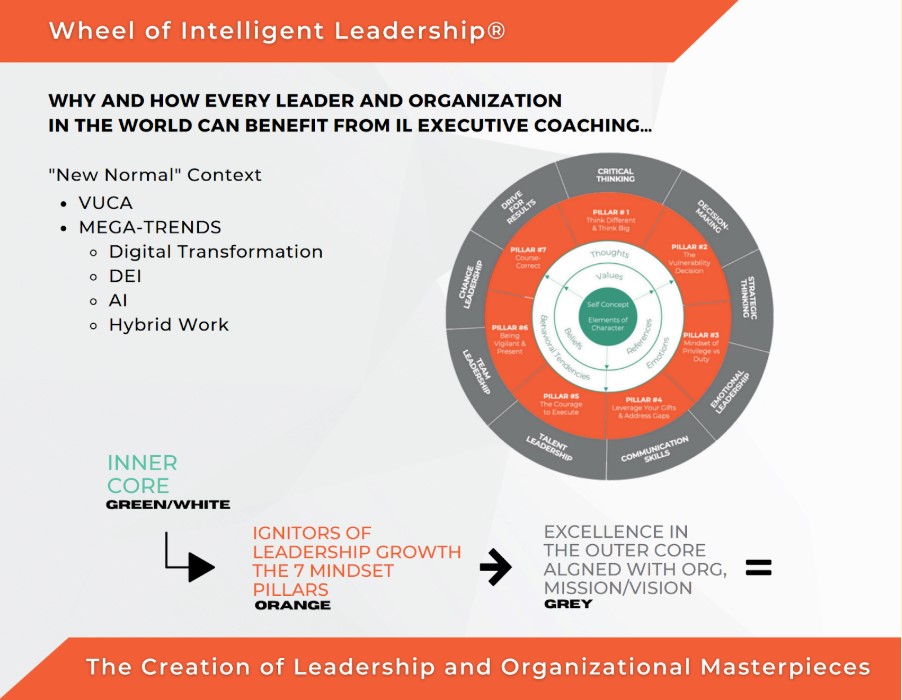THE WORLD’S #1 EXECUTIVE COACHING AND BUSINESS COACHING BLOG SINCE 2017.
Executive Coach Certification Programs, Benefits & References
April 27, 2025 | Category: Blog, Executive Coaching | Last updated on: June 3, 2025

Executive coaches work with executive leadership and other high-potential employees to help them go from competent to outstanding. They help clients improve their self-awareness, articulate their long-term goals and shorter-term objectives, and map out a workable plan for getting from where they are to where they aspire to be.
In other words, the right executive coach helps the client unlock their full potential. But it takes more than good intentions. Effective coaching requires refined executive coaching skills, a mature coaching mindset, and a deep understanding of what drives human and organizational transformation.
A successful coaching relationship is founded on empathy, insight, and the ability to challenge and support others.
Coaches must possess the wisdom to help leaders evolve into legacy builders—individuals who lead with vision, inspire high performance, and create sustainable impact.
These are the foundations of every transformative coaching engagement.
A qualified executive coach can help a leader take his performance to a higher level.
The Prerequisites for an Outstanding Executive Coach
At the core of every successful coach is a solid foundation in fundamental coaching skills—the ability to listen actively, ask powerful questions, build trust, and challenge constructively. These aren’t optional—they’re non-negotiable in leadership coaching.
Emotional Intelligence and Character
Great executive coaching begins with inner work. Coaches must embody maturity, humility, empathy, and integrity. These inner-core traits enable a coach to create a psychologically safe and high-impact relationship with a client.
A Growth-Oriented Coaching Mindset
The best coaches don’t teach growth—they live it. Your coaching mindset must reflect continuous self-development and a drive to help others become the best version of themselves.
Commitment to Coaching as a True Practice
Effective coaching is not about giving advice. It’s about asking the right questions that spark self-awareness and action. Coaches must view their work as a craft that blends both science and art, refined over time through intentional work.
Business and Organizational Acumen
Leadership coaching must connect to real-world business outcomes. Coaches need to understand team dynamics, strategy, and how organizations operate to link individual development with broader business goals.
Building Blocks of Real-World Coaching Impact
While outstanding executive coaches must possess essential coaching skills and a mindset, certain experiences can enhance their coach training program.
- Background in the Same Industry: Many companies begin by looking for coaches with experience in their industry. For example, a tech executive might initially seek someone from a tech background. This shared context can accelerate rapport and understanding. However, while industry alignment can be helpful, it’s not necessary. In many cases, choosing a coach from a different industry leads to valuable intellectual cross-pollination and new perspectives.
- Former Executive or Leadership Experience: Many successful coaches have held senior leadership roles themselves. Some are even retired executives. These individuals bring firsthand knowledge of corporate dynamics, decision-making under pressure, and strategic execution. Their experience can build credibility quickly. Still, it’s not a substitute for the core coaching competencies that drive deep transformation in clients.
- Academic or STEM Backgrounds: Coaches can emerge from diverse paths, including academia or science and engineering. These backgrounds bring unique analytical and problem-solving perspectives to leadership coaching, especially in environments that value structured thinking and innovation.
While these experiences can support a coach’s growth and effectiveness, they are secondary to inner-core development, and ability to create breakthrough results for clients. Ultimately, great coaches help leaders reach their full potential—not by giving advice or mirroring industry experience, but by unlocking self-awareness, fostering accountability, and guiding transformational action.
Executive Coaching Certification Programs: Benefits, Standards, and What to Look For
Not all executive coaches pursue certification, but many do. Earning credentials through coaching certification not only sharpens a coach’s skill set but also signals credibility, professionalism, and commitment to excellence.
A great coaching program helps an aspiring or experienced executive coach stand out in a competitive market by offering the frameworks, feedback, and tools necessary for long-term success in the coaching business.
Certification provides structure to the coaching journey, helping coaches align their practice with established standards and industry expectations. It also enhances a coach’s ability to deliver transformational coaching services rooted in methodology, ethics, and measurable outcomes.
But like the coaches themselves, not all certification programs are created equal.
A strong coaching certification program should have a blend of key elements.
The Upside of Certification
A solid executive coaching certification program provides more than just a certificate. It instills the capabilities required to drive real leadership transformation. The most impactful programs are grounded in proven frameworks and emphasize both the inner mindset and the external behaviors of effective leadership.
They typically offer a balanced focus on:
- Mindset and Self-Awareness: Building the internal strength, character, and emotional intelligence necessary for resilient leadership.
- Structured Methodology: Delivering a repeatable coaching process supported by evidence-based tools and assessments.
- Measurable Outcomes: Focusing on real-world application and tangible leadership improvements.
- Stakeholder Engagement: Teaching coaches how to involve peers, direct reports, and superiors in the development journey.
- Ethics and Accountability: Emphasizing professionalism, confidentiality, and ethical decision-making.
- Continuous Feedback and Calibration: Ensuring coaches grow through practice, structured feedback, and ongoing learning.
These core components create coaches who are not only effective communicators and trusted advisors but also catalysts for lasting organizational performance.
Top-tier coaching programs also prepare you for internationally recognized credentials, such as becoming an Associate Certified Coach (ACC) or a Professional Certified Coach (PCC) through the International Coaching Federation (ICF), the industry standard in coaching.
What Is the ICF and Why It Matters
The International Coaching Federation ICF is the gold standard in the coaching world. As a globally recognized body, ICF sets the benchmarks for coach training, ethics, and performance. ICF-accredited programs give coaches credibility and increase their ability to win clients in a competitive field.
The ICF offers three main credentials:
- Associate Certified Coach (ACC): Ideal for those with 100+ hours of coaching experience and 60+ hours of training from an ICF-accredited program.
- Professional Certified Coach (PCC): For more experienced coaches, requiring 125+ training hours and 500+ hours of experience.
- Master Certified Coach (MCC): The highest ICF credential, designed for elite coaches with extensive experience and impact.
To earn these, you’ll also need to complete mentor coaching, pass the ICF Coach Knowledge Assessment (CKA), and demonstrate real-world coaching effectiveness. One well-known program in the ICF space is the iPEC Coach Training Program, which has gained traction for its emphasis on energy leadership and personal development.
The Risks of Choosing the Wrong Coaching Certification Program
The coaching industry has grown rapidly, and so has the number of certification programs. Some are backed by prestigious universities, such as Harvard, Georgetown, or Northwestern, while others exist mainly to collect fees in exchange for a certificate. You can find such institutions online or in person.
With so many options, it’s critical to do your research. Look for:
- ICF accreditation or equivalent global recognition
- Genuine testimonials from successful coaches and high client satisfaction
- Instructors with real-world coaching and leadership experience
- A proven methodology with a structured curriculum that includes assessments, feedback, and live practice
- A supportive community of expert coaches with ample professional experience
Avoid programs that focus only on theory without practical application, or those that offer certificates without mentor support or coaches without relevant experience.
Businesses look for the right combination of qualities in the executive coaches they hire.
What Sets Professional Coaches Apart
Is it possible to be a good executive coach without having some certification or credential?
Perhaps. Just as the occasional person without a political background manages to go far in politics, or the unknown athlete shows up and wins the New York Marathon, there will occasionally be a person who puts together the right combination of personality, wisdom, and skill to be a fantastic executive coach.
That is the exception rather than the rule, however. Just as you would want legal representation with excellent qualifications and references, people want to hire executive coaches with respected credentials, preferably with a long list of satisfied clients.
That is why people with a natural talent for coaching, who may be self-taught and have experience in business coaching, still pursue coaching certification.
They know they can always improve their skills further, and earning credentials from an accredited executive coaching program can sharpen their competitive edge and make them more attractive to companies interested in coaching for their leaders.
Intelligent Leadership Executive Coaching Certification
Intelligent Leadership® Executive Coaching Certification (ILEC) embodies everything a serious executive coach should look for: a proven system, real-world tools, and a reputation backed by results. It’s designed to go beyond checklists and training hours. It transforms coaches so they can transform others.
ILEC is one of the most comprehensive and results-driven executive coach training programs available today. Built on decades of experience and research, this certification goes beyond traditional coaching theory.
It equips coaches with the tools, structure, and insights necessary to support leaders in creating measurable, sustainable change—both for themselves and their organizations.
Unlike many other programs that focus solely on coaching hours or academic theory, the ILEC is grounded in real-world practice and tested models that improve leadership skills and drive organizational performance.
Through structured methodology, advanced assessments, and strategic development planning, coaches learn how to unlock leadership potential from the inside out.
What Sets the Intelligent Leadership Certification Apart
Intelligent Leadership® Executive Coaching Certification is not just another coaching program. It is a transformative development experience that prepares both internal and independent coaches to lead with purpose, credibility, and impact.
Built on a Proven Coaching Methodology
- The core program is structured around the Four Phases of Intelligent Leadership: Awareness, Assessment, Action, and Achievement.
- Coaches are trained to address both inner-core drivers (values, character, beliefs) and outer-core competencies (communication, strategic thinking, decision-making, execution, interpersonal effectiveness).
- Developed from over 30 years of executive experience with top-performing organizations around the world.
It enables executive coaches to become certified in the unique coaching process used with a range of top leadership clients, including the late Steve Jobs of Apple. The certification program is an immersive course in executive coaching development, helping coaches learn how to unlock their clients’ potential and make client organizations measurably more effective.
Scientifically Supported and Research-Driven
- Integrates principles from psychology, leadership development, and coaching theory.
- Utilizes proprietary assessments like the Mattone Leadership Enneagram Inventory (MLEI), and the Strategic-Tactical Leadership Index-360 (STLI-360™), which have been applied across a range of industries.
- Helps coaches support leaders in cultivating authenticity, resilience, and long-term strategic thinking.
Unmatched ICF Accreditation and Learning Opportunities
- Fully accredited by the International Coaching Federation (ICF).
- Upon successful completion, coaches earn 21.75 core competency credits and 22.25 resource development credits.
- The program also offers advanced learning opportunities, with up to 192 total continuing education credits available—among the highest of any executive coach training program globally.
- Aligns with the credentialing requirements for becoming a Professional Certified Coach (PCC) or Associate Certified Coach (ACC).
Practical Tools and Hands-On Coaching Practice
- The certification includes a three-day training led by certified Master Coaches.
- Coaches receive a full suite of tools and coaching assets, including session blueprints, feedback templates, and frameworks for stakeholder engagement.
- Designed for immediate application—ideal for professionals launching or expanding an independent coaching practice.
Besides an intensive three-day immersive course, however, additional goals are for learners to reach the “Advanced” level, which requires completing three coaching assignments with frequent check-ins with the Intelligent Leadership Team. Ultimately, executive coaches who complete the Intelligent Leadership Certification program and successfully complete six coaching assignments with check-ins earn the “Master IL Coach” designation, further demonstrating the coach’s commitment to excellence.
Program elements include the following:
- Understanding the context of coaching to establish vision and goals
- Learning to complete “inner-core” assessments
- Learning to complete “outer-core” assessments
- Learning to provide targeted and customized development planning
- Mastering Intelligent Leadership content
- Understanding stakeholder and mentor engagement and learning
- Learning how to implement stakeholder feedback and perform coaching debriefs
Designed to Deliver ROI and Real Change
The Intelligent Leadership approach is built for coaches who want to do more than just guide conversations—it’s for those who want to create real, measurable results. By focusing on stakeholder feedback and strategic alignment, the certification empowers coaches to link leadership growth to organizational performance.
Whether you’re building your career as a professional coach, expanding your internal leadership development role, or scaling your executive coaching business, this certification program provides the tools and confidence you need to make an immediate impact.
I’m a Coach. Is Intelligent Leadership Certification for Me?
Effective executive coaching is both an art and a science. Beyond technical coaching skills, it requires emotional intelligence, strategic thinking, and the ability to build strong rapport. Clients—whether internal leaders or external clients—expect measurable outcomes. They rely on coaches to help them explore challenges, accelerate growth, and clarify professional aspirations.
The Intelligent Leadership® Executive Coaching Certification is a unique program that aligns perfectly with these demands. It combines research-based coaching theory with practical tools that elevate leadership skills and drive deep behavioral change.
Coaches learn to support leaders not just in achieving goals, but in transforming how they think, act, and lead.
One of the program’s most powerful elements is its stakeholder-centered approach. You’ll learn how to engage peers, direct reports, and superiors to gain a full-circle view of your client’s leadership impact—an essential component of long-term coaching success.
Why Certification Matters More Than Ever
Executive coach certification is truly coming into its own as more enterprises worldwide realize the measurable and immeasurable benefits of executive coaching.
Businesses want to hire coaches who have the qualifications and experience necessary to unlock client potential, and coaches themselves want to show that they have the skills and certifications needed to work with an increasingly prestigious portfolio of clients.
Whether you’re launching an independent coaching business or deepening your capabilities as a professional coach, successful completion of this certification provides you with a framework for sustainable client growth and exceptional results through effective communication and proven methodology.
How Intelligent Leadership Affects C-Level Executive Coaching Clients
Intelligent Leadership coaching is designed to empower executives to achieve sustained greatness, enabling them to create a lasting, positive legacy. Intelligent Leadership program was named one of the world’s top three Advanced Leadership Development Programs that Change Lives, alongside programs by the esteemed Tony Robbins and John Maxwell.
John Mattone has been recognized the world over for his effective executive coaching practices.
Fabio Potenti, MD, Chief Medical Operations Officer of the Cleveland Clinic-Florida credits John Mattone’s coaching methods with “fueling both my personal and professional life.”
Bonnie Hagemann, CEO of Executive Development Associates, says that the Intelligent Leadership Approach helps coaching clients “build and retain their talent from the time they enter the leadership pipeline all the way to the major leagues.”
And Richard Swanson, President and CEO of Nebraska Machinery, credits John Mattone’s coaching with “driving sustained bottom-line performance.”
A survey of 100 leaders coached by John Mattone found that 98% of them improved, based on data from over 1,500 LeaderWatch surveys.
Intelligent Leadership coaching has been used and fine-tuned for years, and the bottom-line results prove it works.
Executive coach certification can help coaches build a stronger client portfolio.
Conclusion
Whether you’re a practicing coach or a seasoned professional, the right executive coach certification can redefine your coaching style, elevate your performance coaching results, and position you as a trusted guide to top-tier leaders. But choosing the right program matters.
With decades of global recognition, real-world tools, and a legacy of results, John Mattone’s Intelligent Leadership® Certification equips independent executive coaches to deliver measurable impact and support transformative growth in the world’s most influential leaders.
Schedule your free discovery session today and learn how John Mattone Global can help you grow your coaching practice and transform leaders at the highest levels.
Frequently Asked Questions (FAQ)
What is the Intelligent Leadership Executive Coaching Certification?
The Intelligent Leadership Executive Coaching Certification (ILEC) is a globally recognized, ICF-accredited program developed by John Mattone. It equips coaches with research-backed tools, frameworks, and methodologies to deliver measurable leadership transformation.
Is executive coaching certification worth it?
Yes. Certification signals credibility, enhances your coaching skills, and helps you stand out in a competitive coaching market. It also opens doors to more prestigious clients and sustainable career growth.
How do I become a certified executive coach?
To become a certified executive coach, you typically complete an ICF-accredited training program, gain coaching experience hours, receive mentor coaching, and pass the ICF’s Coach Knowledge Assessment (CKA).
What makes John Mattone’s certification program different?
John Mattone’s Intelligent Leadership Executive Coaching Certification stands out for its deep integration of inner and outer core leadership development, a methodology built on decades of real-world executive experience, and powerful proprietary tools like the MLEI and STLI-360. Unlike many programs, ILEC is fully accredited by the International Coaching Federation and offers up to 192 Continuing Coach Education (CCE) hours—one of the highest in the industry. This comprehensive structure empowers coaches to deliver measurable results and prepare for ICF credentials such as ACC or PCC.
What is the difference between a leadership coach and an executive coach?
Leadership coaches focus on developing general leadership skills, often across all organizational levels. Executive coaches specialize in working with senior leaders, guiding strategic thinking, decision-making, and organizational influence.
What is the ICF and why does it matter for executive coaching?
The International Coaching Federation (ICF) is the leading global credentialing body for coaches. ICF accreditation ensures your coaching program meets the highest professional standards and is recognized by clients worldwide.
Can I get ICF certification through John Mattone’s program?
Yes. John Mattone’s Intelligent Leadership Certification is ICF-accredited and provides up to 192 CCEs—among the highest of any executive coaching certification program—positioning you to earn ACC or PCC credentials.
Who should enroll in an executive coaching certification program?
Executive coaching certification is ideal for aspiring coaches, experienced leadership professionals, HR leaders, and independent coaches who want to deepen their coaching practice and support high-level leaders.
What do you learn in executive coaching certification?
You learn core coaching competencies, stakeholder engagement, performance coaching techniques, inner-core assessments, and how to align leadership growth with business outcomes.
How long does it take to complete an executive coaching certification?
Programs vary, but many—including John Mattone’s Level 1 certification—can be completed in an immersive 3-day training, with additional modules and coaching assignments required for mastery levels.








